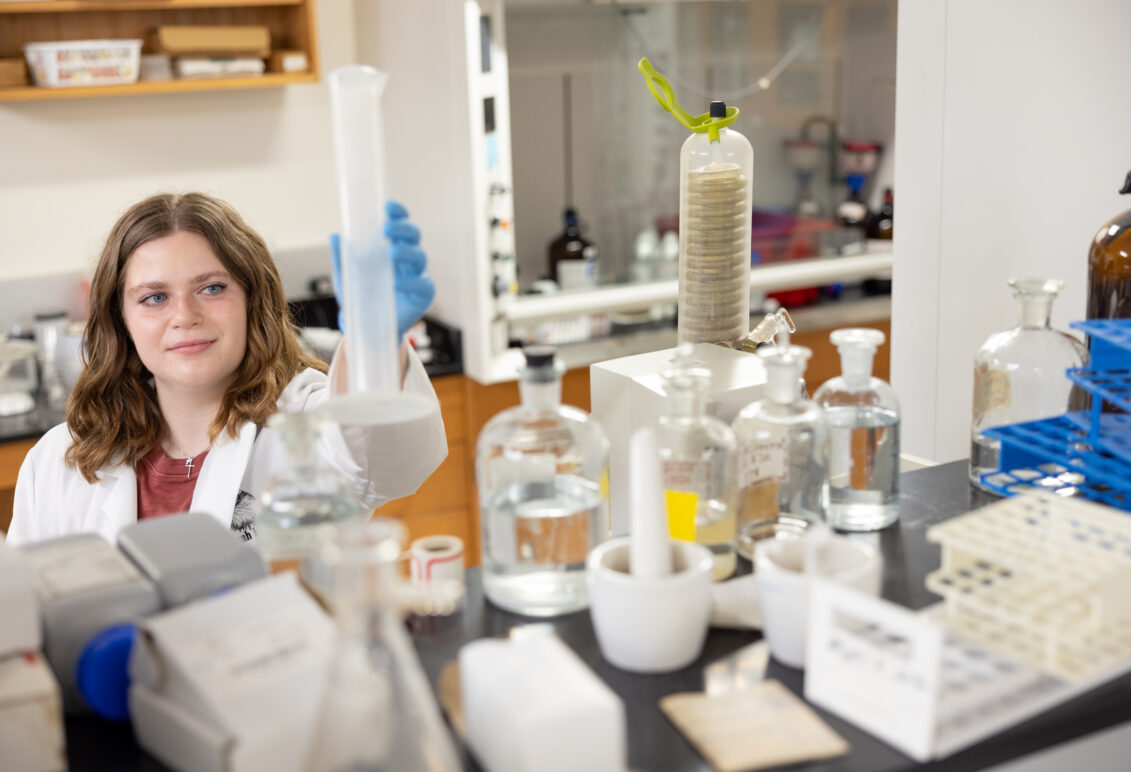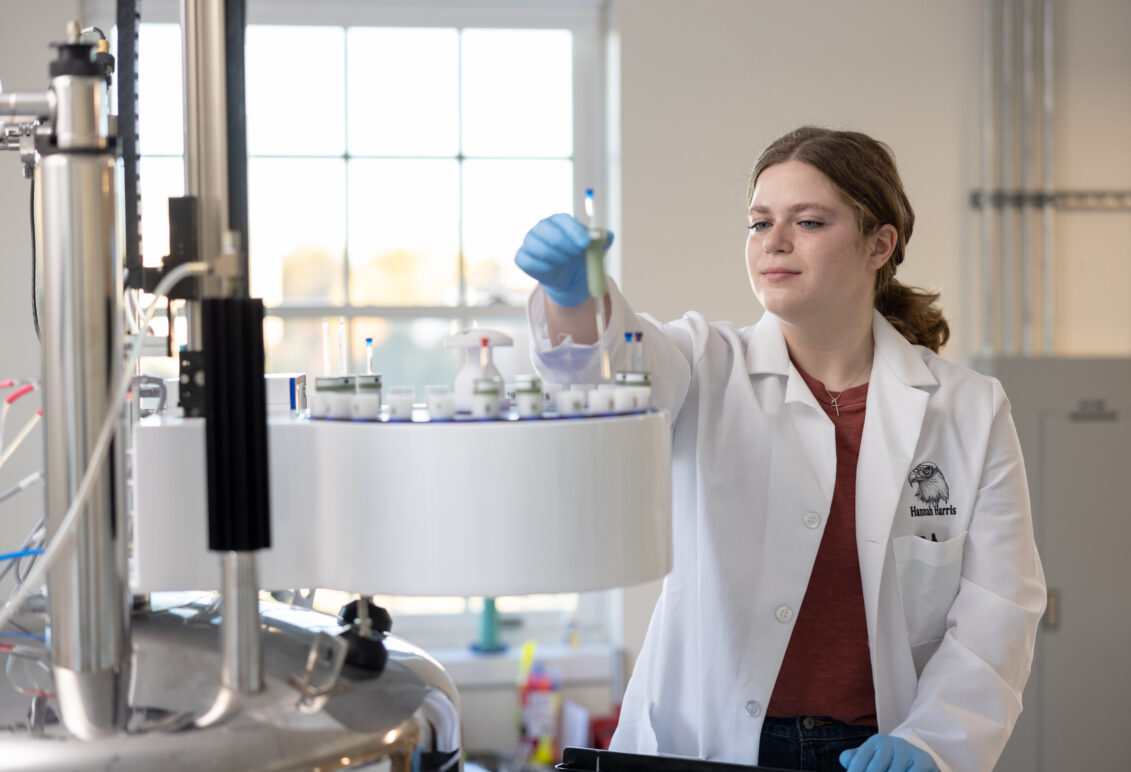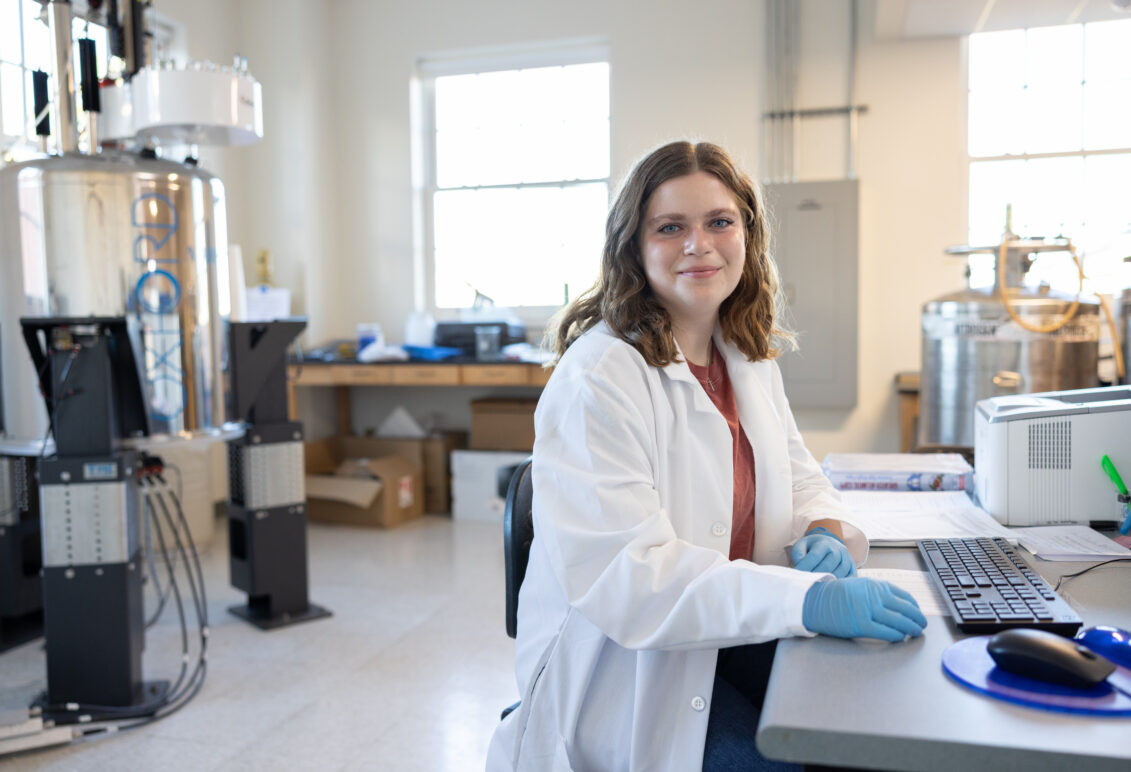Know chemistry, know the universe.
Chemistry is the bridge between the physical and life sciences, the key to understanding every material aspect of the universe. Major in chemistry at the University of Mary Washington and you’ll master the properties of matter and make vital connections among disciplines. You’ll challenge yourself with courses and labs that ignite your passions, preparing you to make breakthroughs whether you enter the career world right away or pursue advanced study.
Degree Awarded
Students majoring in Chemistry who complete all requirements earn the degree of Bachelor of Science (B.S.) in Chemistry.
Areas of Study
UMW’s bachelor’s program in chemistry covers societal, organic, physical, and environmental chemistry, and offers courses in biochemistry, chemical analysis, chemical outreach, and more.
Career Opportunities
A chemistry degree from UMW will prepare you for a career or advanced studies in environmental chemistry, chemical engineering, clinical chemistry, pharmaceutical chemistry, biomedical and forensic science, or technical sales. Our graduates have found careers at NASA, Dow, Virginia Power, Pfizer, the Naval Research Laboratory, Atlantic Research, Estee Lauder, the Drug Enforcement Agency, the Naval Surface Warfare Center, and the National Institutes of Health.
Internships
Students are encouraged to pursue research and internship opportunities with such employers as the National Institutes of Health, the National Science Foundation, and the American Chemical Society. Learn more about UMW internships in chemistry.
To earn departmental honors in chemistry, you must have at least a 3.25 grade-point average in chemistry and 3.0 overall. You’ll complete an independent research project, then write and defend a thesis. Students pursuing departmental honors enroll in Chemistry 491 for four credits in each semester of the senior year.
Major Requirements
Chemistry majors must complete 39 credits, including 19 upper-level courses. Students may complete extra coursework to earn an American Chemical Society-certified degree.
Minor Requirements
A minor in chemistry requires at least 15 credits, including general chemistry with a lab, either organic chemistry or chemical analysis, each with a lab, and three more courses, to include no more than one lab, chosen from biochemistry, environmental chemistry, inorganic chemistry, and physical chemistry.
Numerous scholarships and awards are available for chemistry majors.


